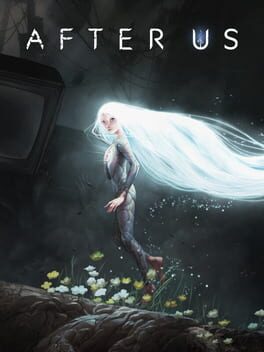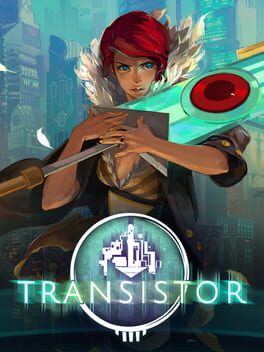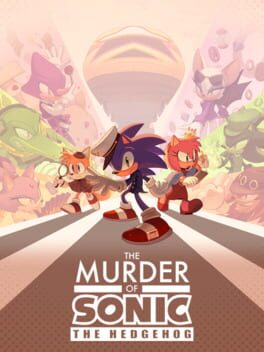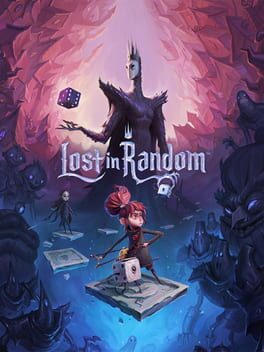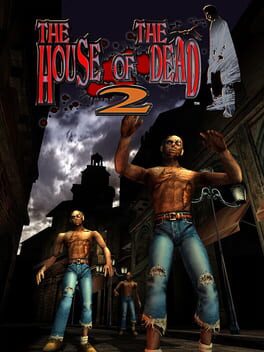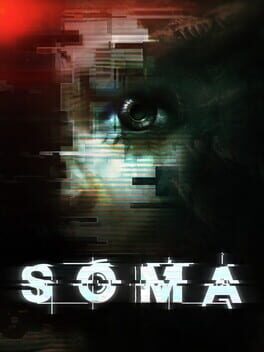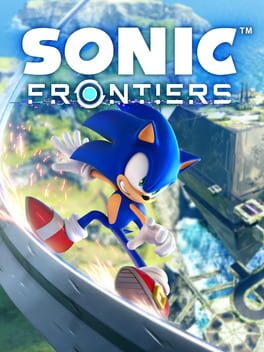dandeyrain
56 Reviews liked by dandeyrain
Haunting Ground
2005
This review contains spoilers
so much of the actual game itself is great--the setting, the character models, so many of the mechanics, the music, and fiona and hewie are pretty brilliant in my opinion--but the writing really isn't good. i think daniella's chase sequences were the most enjoyable / interesting, and she really got me when she hid in the fucking WARDROOOOBE. im glad i've seen it though and i love the music. fiona we're gonna get you outta there
Resident Evil 4
2023
The original Resident Evil 4, on the Gamecube, has a bit of a historical significance to me, being the first (and for many years, the only) survival horror game I beat by myself. I first saw it at a friend's house, thought it looked incredibly cool, and hey, sure, it's a horror game, but I'm old enough, I can handle it now! I was, of course, wrong, a lesson the Regenerator would soon enough burn into my mind. I was also terrible at the game and died a ton, as I'm pretty sure this was also my first shooter on console. Regardless, I pushed through, and the game earned a nostalgia-filled place in my heart.
So when the remake was announced, I was a bit apprehensive. RE4 was a product of its time, both in the sense that it could never be replicated and that it would never fly in today's industry, as it features mechanics and a storytelling style that major franchises, and especially, the Resident Evil series, have moved on from. How would they even go about remaking the game? Would a remake follow in the footsteps of its predecessor, focusing on delivering on an intense and satisfying action gameplay experience, or would it attempt to pull the series further back towards survival horror? And would it keep the cheesiness of the Gamecube game, the quips and trash talk, or would it play things more seriously and focus on the Resident Evil melodrama? Would it seek to replicate the highs of the original release, or would it feel like its own, separate thing?
The answer to all of those questions is yes.
It's unenviable how many disparate things RE4R attempts to balance, and even more shocking is how it manages to. Take, for example, the character of Leon S. Kennedy, the protagonist in this story. Leon is remembered by RE4 players as being this pretty cool guy who kills ganados and doesnt afraid of anything, but that representation, as fitting as it is for the pulp action ride that is that game, is at odds with his character in basically every other Resident Evil piece of media, especially Resident Evil 2. In all other places, he's a rookie cop turned US agent who's deeply traumatized by the incident in Raccoon City, which left him filled with survivor's guilt. How do you bring that element into RE4?
RE4R kicks off by presenting a slightly altered version of the opening in which, instead of Leon neutrally narrating the events that happened in 1998, focusing on Umbrella's downfall, he is more emotional and focuses, instead, on himself: the death of the policeman in the disaster caused by the T-Virus leading, almost unwillingly, to the birth of one of the US's top secret agents. This then cuts to him in the car with the two Spanish policemen, and the three exchange quips. It's an incredible decision, because it changes nothing from the structure of the original, but takes the opportunity to present both sides of Leon's personality, immediately establishing him as a much more layered version of the character he was in the original game. Which is to say, he still is that character from an external observer's point of view -- I have never been happier to hear the word "Bingo" in my life.
That opening also shows us glimpses of other characters, like Krauser and Ada, which gives more, much needed context to their appearances later in the story. Which is to say, pretty much everyone in the cast has gained from being remade in RE4R: Ashley now has more of a partner dynamic with Leon, through which we get to see more of her inner thoughts, and also his. Ada feels less out of place, being presented in ways that make her less of a surreal addiction to the story. Saddler and Mendez are now more cult-ish and intimidating, but there's also a human side shown to the latter; Krauser's relationship with Leon, as well as his motivations, are more clearly established, making the confrontations against him more satisfying...
The greatest winner, though, has to be Luis, who, like Leon, has had his backstory emphasized and got a more layered personality. Crucially, though, he now gets more time on-screen, time which is used to deliver on a more nuanced and satisfying character arc built upon his interactions with Leon, Ashley and Ada. Without going into spoilers, he is, at first, made more mysterious (not to say sleazy), which in turn causes Leon to not trust him, and the two have a much more rocky and thus more interesting relationship. There's a parallel made between him and Don Quixote, the overwhelming outward confidence of a man who wants to be a hero, not realizing the world isn't as simple as he thinks and that he is actually in way over his head -- it's fitting for the tragic heroism to this new Luis that greatly enhances the narrative of the remake. Incidentally, for those who like digging into the lore of the game's Files, he is now more integrated into the Resident Evil canon than his predecessor, which is also a plus.
People can change, right?
The way characters are treated is but a part of how RE4R understands what was great about the original and seeks to enhance those moments whenever possible. Another area in which RE4 was incredibly successful was the creation of horror through anxiety, the feeling of being trapped, undersupplied and soon to be overwhelmed, and iconic setpieces that played to those emotions are still here: take the village fight, for instance, which retains all the qualities of the original, but adds a couple more events that enhance the feeling of being cornered. It remains, in my opinion, the most brutal part of the game, though it is closely rivaled by the cabin fight, just a bit further into the village, which now has a new mechanic involving the windows that keeps the fight moving and the anxiety piling up. It also features much better scene direction and, even more importantly, sound design, both which drive home the point of how dire the situation our heroes find themselves in really is.
It bears saying, however, that although RE4 is notorious for that type of setpiece, it's not the only way in which it created horror: though less frequent, horror through dread also played an important part in the game. Here, I would avoid detailing specific sequences to avoid spoilers, but I will say that RE4R makes excellent use of the different types of plaga, and that old friends will be showing up again, like Verdugo and the Regenerators. Oh god, the goddamn Regenerators. I hate them so much. You know, when Leon said "What the fuck?!", I really felt it. Anyway.
And it's worth not going into spoilers, because as much as RE4R takes to enhancing beloved sequences, it's also willing to scrap ones that don't make a lot of sense. The original RE4 had a linear design in which some parts were unevenly paced (the Island, in particular, being notorious for this), and multiple sections felt like video game levels that were inconsequential in the long run. This may have worked in 2005, when we were all too eager to engage in more of the flashy combat of this new game, but is a way harder sell in 2023, when the bar is set so much higher. RE4R repositions, repurposes and even entirely replaces locations from the original game, and as such, it feels like a new game, with new surprises.
And does it hit that extremely high bar it sets to match? Yes. The remake retains the qualities of the original, but with modern enhancements that make all the difference. Most, if not all the original's guns are here, balanced further so that all of them feel like they have a niche, that they are exceptional at something. It's actually shocking how you can use anything if it fits your playstyle: even weapons I thought were memes, like the CQBR Rifle, have someone, somewhere, that swears by them and can use them to great effect. Central to all this is that one can now move while aiming, which improves their options during combat. Weapon shortcuts also exist, letting Leon switch weapons without entering the inventory screen.
The overall game balance, as well as the management of difficulty, was something the original RE4 was well known for. Similar systems are still, as far as I understand, being employed in all RE remakes, including this one, and as such, the game excels at making its player feel challenged, but never cheated; constantly running out of options, but never completely out. It also features a crafting system -- yes, I know, I too wince at the sight of those on modern games, but I promise, this one is actually good. The player is handed out crafting resources just like any every other resource -- it's not something that has or can be grinded for -- and at the cost of the inventory space they take, they give the player more flexibility in regards to the items they get. Is the RNG not playing along? You can offset that by using some of your resources. Would having more bullets help you out of this mess, or would popping a flash and booking it be more effective? Your choice. It's a simple and effective system that empowers the player without ever getting in their way.
And on that note, I have to mention the knife parries. The remake turns the knife into a resource which can be used to get yourself out of attacks that would deal high damage. Relying on that too much, however, will break it until the next visit to the merchant a time during which one misses out on the truly effective uses of the knife, which are stealth kills and knife parries. Through those, you can entirely avoid dealing with an enemy, or parry the attack and stun your target in the process. Parrying is an extremely rewarding mechanic with a high skill ceiling, and it's the final piece in making RE4's combat feel more fluid than ever.
What an incredible ride RE4R is. Its critics will of course say that it is not as revolutionary as its predecessor, but that was never the point: RE4 sought to create a new identity for a series that feared being forgotten, while RE4R seeks to rescue and reinforce that old identity, and reconcile it with the 2005 game. And on that goal, it succeeded, delivering an incredibly well-written and designed game, and highly polished to boot. I played it for almost 100 hours already, finishing it six times, each credits roll making me hungry for the next, and just writing about it makes me want to go for a seventh. In the end, that's what matters most.
So when the remake was announced, I was a bit apprehensive. RE4 was a product of its time, both in the sense that it could never be replicated and that it would never fly in today's industry, as it features mechanics and a storytelling style that major franchises, and especially, the Resident Evil series, have moved on from. How would they even go about remaking the game? Would a remake follow in the footsteps of its predecessor, focusing on delivering on an intense and satisfying action gameplay experience, or would it attempt to pull the series further back towards survival horror? And would it keep the cheesiness of the Gamecube game, the quips and trash talk, or would it play things more seriously and focus on the Resident Evil melodrama? Would it seek to replicate the highs of the original release, or would it feel like its own, separate thing?
The answer to all of those questions is yes.
It's unenviable how many disparate things RE4R attempts to balance, and even more shocking is how it manages to. Take, for example, the character of Leon S. Kennedy, the protagonist in this story. Leon is remembered by RE4 players as being this pretty cool guy who kills ganados and doesnt afraid of anything, but that representation, as fitting as it is for the pulp action ride that is that game, is at odds with his character in basically every other Resident Evil piece of media, especially Resident Evil 2. In all other places, he's a rookie cop turned US agent who's deeply traumatized by the incident in Raccoon City, which left him filled with survivor's guilt. How do you bring that element into RE4?
RE4R kicks off by presenting a slightly altered version of the opening in which, instead of Leon neutrally narrating the events that happened in 1998, focusing on Umbrella's downfall, he is more emotional and focuses, instead, on himself: the death of the policeman in the disaster caused by the T-Virus leading, almost unwillingly, to the birth of one of the US's top secret agents. This then cuts to him in the car with the two Spanish policemen, and the three exchange quips. It's an incredible decision, because it changes nothing from the structure of the original, but takes the opportunity to present both sides of Leon's personality, immediately establishing him as a much more layered version of the character he was in the original game. Which is to say, he still is that character from an external observer's point of view -- I have never been happier to hear the word "Bingo" in my life.
That opening also shows us glimpses of other characters, like Krauser and Ada, which gives more, much needed context to their appearances later in the story. Which is to say, pretty much everyone in the cast has gained from being remade in RE4R: Ashley now has more of a partner dynamic with Leon, through which we get to see more of her inner thoughts, and also his. Ada feels less out of place, being presented in ways that make her less of a surreal addiction to the story. Saddler and Mendez are now more cult-ish and intimidating, but there's also a human side shown to the latter; Krauser's relationship with Leon, as well as his motivations, are more clearly established, making the confrontations against him more satisfying...
The greatest winner, though, has to be Luis, who, like Leon, has had his backstory emphasized and got a more layered personality. Crucially, though, he now gets more time on-screen, time which is used to deliver on a more nuanced and satisfying character arc built upon his interactions with Leon, Ashley and Ada. Without going into spoilers, he is, at first, made more mysterious (not to say sleazy), which in turn causes Leon to not trust him, and the two have a much more rocky and thus more interesting relationship. There's a parallel made between him and Don Quixote, the overwhelming outward confidence of a man who wants to be a hero, not realizing the world isn't as simple as he thinks and that he is actually in way over his head -- it's fitting for the tragic heroism to this new Luis that greatly enhances the narrative of the remake. Incidentally, for those who like digging into the lore of the game's Files, he is now more integrated into the Resident Evil canon than his predecessor, which is also a plus.
People can change, right?
The way characters are treated is but a part of how RE4R understands what was great about the original and seeks to enhance those moments whenever possible. Another area in which RE4 was incredibly successful was the creation of horror through anxiety, the feeling of being trapped, undersupplied and soon to be overwhelmed, and iconic setpieces that played to those emotions are still here: take the village fight, for instance, which retains all the qualities of the original, but adds a couple more events that enhance the feeling of being cornered. It remains, in my opinion, the most brutal part of the game, though it is closely rivaled by the cabin fight, just a bit further into the village, which now has a new mechanic involving the windows that keeps the fight moving and the anxiety piling up. It also features much better scene direction and, even more importantly, sound design, both which drive home the point of how dire the situation our heroes find themselves in really is.
It bears saying, however, that although RE4 is notorious for that type of setpiece, it's not the only way in which it created horror: though less frequent, horror through dread also played an important part in the game. Here, I would avoid detailing specific sequences to avoid spoilers, but I will say that RE4R makes excellent use of the different types of plaga, and that old friends will be showing up again, like Verdugo and the Regenerators. Oh god, the goddamn Regenerators. I hate them so much. You know, when Leon said "What the fuck?!", I really felt it. Anyway.
And it's worth not going into spoilers, because as much as RE4R takes to enhancing beloved sequences, it's also willing to scrap ones that don't make a lot of sense. The original RE4 had a linear design in which some parts were unevenly paced (the Island, in particular, being notorious for this), and multiple sections felt like video game levels that were inconsequential in the long run. This may have worked in 2005, when we were all too eager to engage in more of the flashy combat of this new game, but is a way harder sell in 2023, when the bar is set so much higher. RE4R repositions, repurposes and even entirely replaces locations from the original game, and as such, it feels like a new game, with new surprises.
And does it hit that extremely high bar it sets to match? Yes. The remake retains the qualities of the original, but with modern enhancements that make all the difference. Most, if not all the original's guns are here, balanced further so that all of them feel like they have a niche, that they are exceptional at something. It's actually shocking how you can use anything if it fits your playstyle: even weapons I thought were memes, like the CQBR Rifle, have someone, somewhere, that swears by them and can use them to great effect. Central to all this is that one can now move while aiming, which improves their options during combat. Weapon shortcuts also exist, letting Leon switch weapons without entering the inventory screen.
The overall game balance, as well as the management of difficulty, was something the original RE4 was well known for. Similar systems are still, as far as I understand, being employed in all RE remakes, including this one, and as such, the game excels at making its player feel challenged, but never cheated; constantly running out of options, but never completely out. It also features a crafting system -- yes, I know, I too wince at the sight of those on modern games, but I promise, this one is actually good. The player is handed out crafting resources just like any every other resource -- it's not something that has or can be grinded for -- and at the cost of the inventory space they take, they give the player more flexibility in regards to the items they get. Is the RNG not playing along? You can offset that by using some of your resources. Would having more bullets help you out of this mess, or would popping a flash and booking it be more effective? Your choice. It's a simple and effective system that empowers the player without ever getting in their way.
And on that note, I have to mention the knife parries. The remake turns the knife into a resource which can be used to get yourself out of attacks that would deal high damage. Relying on that too much, however, will break it until the next visit to the merchant a time during which one misses out on the truly effective uses of the knife, which are stealth kills and knife parries. Through those, you can entirely avoid dealing with an enemy, or parry the attack and stun your target in the process. Parrying is an extremely rewarding mechanic with a high skill ceiling, and it's the final piece in making RE4's combat feel more fluid than ever.
What an incredible ride RE4R is. Its critics will of course say that it is not as revolutionary as its predecessor, but that was never the point: RE4 sought to create a new identity for a series that feared being forgotten, while RE4R seeks to rescue and reinforce that old identity, and reconcile it with the 2005 game. And on that goal, it succeeded, delivering an incredibly well-written and designed game, and highly polished to boot. I played it for almost 100 hours already, finishing it six times, each credits roll making me hungry for the next, and just writing about it makes me want to go for a seventh. In the end, that's what matters most.
After Us
2023
I really tried to love this game. I really did. But I've never witnessed a game draining my energies this much before. I mostly think it's a problem of this games' pace. After Us has a lot of really great visual setpieces and I was in awe of many of them. But it stays way too long on the same page in terms of visual identity and doesn't manage to translate any of it into gameplay. Playing the game feels painfully uniform, you mostly jump from rock platform to pieces of junk to rock platform, the few gameplay ideas never managing to break this cycle in an interesting way. Shortening this (already relatively short) game by about half its length would have done wonders for it, I believe. That may also be because the best part about it is everything but actually playing the game. After Us has nice and creative visual ideas, a moody soundtrack and a nicely packaged but ultimately quite reductive message about pollution and climate change. But I think I can enjoy these parts more when I watch a playthrough on YouTube.
I had zero interest in Resident Evil until about three-ish years ago when my friend sent me a clip of Ethan's "What the fuck...well that's special," line, which immediately had me reassess my opinion on RE as a whole. Cut to me watching a "shit Ethan Winters says" compilation. I didn't get around to actually getting into RE properly for another year or so until I played RE2Make, and only after DBD got me a little more used to the horror genre.
Cut to some time last year (I think? Maybe a year and a half ago?) and I figure it's finally time to get to know the guy who I've called my favorite character since getting into Resident Evil so I stop looking like a poser or whatever. I got past the introductory section in the main house and was so scared I just...put it down and sort of forgot about it. And opted to play other games before it. UNTIL NOW!!!
The worst part is that I missed Ethan's "What the fuck...well that's special," line because I was too busy asking if the game was gaslighting me because I jumped down onto the floor to look for the lantern and was wildly panning around and happened to be re-climbing the ladder at the time the voice line was triggered. :(
The tl;dr of my review is that I quite like the story, I can officially say Ethan is my favorite character in the franchise without looking like idk what I'm talking about, I like Mia and Ethan's relationship and the implied drama that circumvents it both before and after the game (even before RE8 came out). Jack is easily the most memorable part of the game though and it's a shame they went through him so fast. Also it's weird they only stuck to 3 enemy types for the whole thing. The pacing sort of fell off in the latter half of the game too, although I didn't hate the ship level the way other reviews seem to say they do. 4 stars for Ethan
Cut to some time last year (I think? Maybe a year and a half ago?) and I figure it's finally time to get to know the guy who I've called my favorite character since getting into Resident Evil so I stop looking like a poser or whatever. I got past the introductory section in the main house and was so scared I just...put it down and sort of forgot about it. And opted to play other games before it. UNTIL NOW!!!
The worst part is that I missed Ethan's "What the fuck...well that's special," line because I was too busy asking if the game was gaslighting me because I jumped down onto the floor to look for the lantern and was wildly panning around and happened to be re-climbing the ladder at the time the voice line was triggered. :(
The tl;dr of my review is that I quite like the story, I can officially say Ethan is my favorite character in the franchise without looking like idk what I'm talking about, I like Mia and Ethan's relationship and the implied drama that circumvents it both before and after the game (even before RE8 came out). Jack is easily the most memorable part of the game though and it's a shame they went through him so fast. Also it's weird they only stuck to 3 enemy types for the whole thing. The pacing sort of fell off in the latter half of the game too, although I didn't hate the ship level the way other reviews seem to say they do. 4 stars for Ethan
Transistor
2014
Hi-Fi Rush
2023
Absolutely love this game, I could play the combat all day and the music never stops being great. I know everyone and their mom's talked about the Devil May Cry inspiration but honestly if Devil May Cry had this gameplay, I'd replay them way more often and they're some of my favorite games LMAO! Definitely recommend!
Resident Evil 4
2023
This review contains spoilers
TBH my favorite parts of the game were the Ashley segment and the part in the lab with the monsters chasing you, which I think is more a sign that I like survival horror over third person shooters than anything. My rating is more just for "I liked RE2Make and I gave that 4 stars and I liked RE4Make too but not quite as much as RE2Make so I have to give it 3.5 stars" rather than it technically feeling like a failure in any regard. The game is really well-made, dialogue is cringey and fun, you go on a rail cart roller coaster, you blow up guys with rocket launchers, Leon does backflips for no real reason, the merchant is my bestie, etc..
I feel like I was spending the whole game trying to figure out how to actually play it and not get my ass beat, but by the end it was coming together finally, so I'd like to go back through it again and really test the limits of my understanding of the game now that I'm more comfortable with its playstyle.
I think anyone who liked RE4 is going to really enjoy the remake and it's totally worth picking up also I LOOOOVE LEON'S JACKEEEEEET
I feel like I was spending the whole game trying to figure out how to actually play it and not get my ass beat, but by the end it was coming together finally, so I'd like to go back through it again and really test the limits of my understanding of the game now that I'm more comfortable with its playstyle.
I think anyone who liked RE4 is going to really enjoy the remake and it's totally worth picking up also I LOOOOVE LEON'S JACKEEEEEET
Hi-Fi Rush
2023
Lost in Random
2021
This is a really charming little game. The combat is underwhelming, but it's sufficient; I can't name any major flaws with it, but it's ultimately the most forgettable part of the experience. Where this game really shines is in its world design, atmosphere, and presentation. As much as I love realistic AAA games like God of War Ragnarok and Elden Ring, there's always a special place in my heart for more stylized titles like this, and I really can't think of another game like Lost in Random in that regard. Unless you're really hunting for the best combat gameplay experience you can find, I strongly recommend this game, and despite its flaws, I'll be more than happy to jump into any sequel that comes out for another chance to, dare I say it, get lost in Random.
The only big problem is no one in the game knows the singular form of "dice" so for that reason alone I must sadly give it a 0 out of 10.
The only big problem is no one in the game knows the singular form of "dice" so for that reason alone I must sadly give it a 0 out of 10.
Soma
2015
This review contains spoilers
There's a part pretty early on in this game that I think captures what makes it so great. You are told you have to use a chip from a robot in order to activate a lift you need to progress. You have two options as to where you can retrieve this chip: a small fully-automated robot that chirps and beeps and acts sort of like a pet, helping you with rusted doors as it follows you around after you save it. Or, a robot that has the consciousness of a person uploaded in it, mumbling to himself and delirious while he navigates the area and is completely unhelpful to you with what you need. You have to kill one of these things and use its chip. SOMA asks you which life you consider more valuable, regardless of if it's 'human' enough or not.
SOMA asks a lot of questions in this vein and I think out of the games I've played it's the most effective one.
I do have a complaint about the WAU sub-narrative though. A lot of the latter part of the game hinges on Simon seeing visions from the one crew member about going to the WAU and infecting it so it will die and stop doing whatever it's doing to everything around it. So you go, it eats your hand, and boom mission accomplished according to the WAU-ified hallucination (?) of Ross (name?) Simon is seeing. And then Ross dies and then that's the end of that plot? It goes completely unaddressed for the remainder of the narrative, and I was pretty disappointed by that. The story's emphasis definitely should have stayed on the ARK and its launching, but...huh? There was a lot of build-up for a whole lot of nothing.
The game feels pretty similar to Amnesia controls-wise, which is to say I was STRUGGLINGGGGGGG. The game's knobs and hinges were finicky with my mouse, indicators on key items could be hard to pick up on, etc. That said, the environments were really well-made. Especially the underwater section outside Tau. Also, I was playing on safe mode, so any frustration I might have had with the game was pretty much a non-issue since there wasn't any real threat posed by the monsters.
Simon is a very well-written character and incredibly realistic but I did sort of want to hit him over the head a few times. Which I think is good and justifiable for a character like him, and I wouldn't write him any other way, although the voice acting felt a little stiff for me at times and I think that maybe had something to do with my occasional disdain. Not that I dislike him, but oh my goddddddd dude.
I felt the ending after the credits showing the Simon and Catherine on the ARK sort of undermined the ending before the credits--I've typed out so many reasons to try and explain why I don't like it very much but I'm really struggling with articulating it in a way that feels authentic too. We play as one iteration of Simon through the whole game and then to be given another 'Simon' at the end just for the sake of a happy ending feels...? Inauthentic? But then again this sort of backs up SOMA's themes: is SOMA a tragedy? Or is it fine because a version of Simon who isn't us got on the ARK? Personally, I guess I just feel like the visual confirmation of that rather than keeping it in 'hope' limbo cheapens the effect.
Overall, I really liked the game, but I doubt I would want to play it on normal, and I really wish the WAU thing had been tied up more. Despite that, if you like philosophical science fiction (hell the game opens with a Philip K Dick quote!) this really is worth checking out and I really did thoroughly enjoy the narrative and the way it went about asking its particular questions.
SOMA asks a lot of questions in this vein and I think out of the games I've played it's the most effective one.
I do have a complaint about the WAU sub-narrative though. A lot of the latter part of the game hinges on Simon seeing visions from the one crew member about going to the WAU and infecting it so it will die and stop doing whatever it's doing to everything around it. So you go, it eats your hand, and boom mission accomplished according to the WAU-ified hallucination (?) of Ross (name?) Simon is seeing. And then Ross dies and then that's the end of that plot? It goes completely unaddressed for the remainder of the narrative, and I was pretty disappointed by that. The story's emphasis definitely should have stayed on the ARK and its launching, but...huh? There was a lot of build-up for a whole lot of nothing.
The game feels pretty similar to Amnesia controls-wise, which is to say I was STRUGGLINGGGGGGG. The game's knobs and hinges were finicky with my mouse, indicators on key items could be hard to pick up on, etc. That said, the environments were really well-made. Especially the underwater section outside Tau. Also, I was playing on safe mode, so any frustration I might have had with the game was pretty much a non-issue since there wasn't any real threat posed by the monsters.
Simon is a very well-written character and incredibly realistic but I did sort of want to hit him over the head a few times. Which I think is good and justifiable for a character like him, and I wouldn't write him any other way, although the voice acting felt a little stiff for me at times and I think that maybe had something to do with my occasional disdain. Not that I dislike him, but oh my goddddddd dude.
I felt the ending after the credits showing the Simon and Catherine on the ARK sort of undermined the ending before the credits--I've typed out so many reasons to try and explain why I don't like it very much but I'm really struggling with articulating it in a way that feels authentic too. We play as one iteration of Simon through the whole game and then to be given another 'Simon' at the end just for the sake of a happy ending feels...? Inauthentic? But then again this sort of backs up SOMA's themes: is SOMA a tragedy? Or is it fine because a version of Simon who isn't us got on the ARK? Personally, I guess I just feel like the visual confirmation of that rather than keeping it in 'hope' limbo cheapens the effect.
Overall, I really liked the game, but I doubt I would want to play it on normal, and I really wish the WAU thing had been tied up more. Despite that, if you like philosophical science fiction (hell the game opens with a Philip K Dick quote!) this really is worth checking out and I really did thoroughly enjoy the narrative and the way it went about asking its particular questions.
Sonic Frontiers
2022
It's far from a polished product: it's janky at times, jump momentum and mid-air control never quite felt right, the pop-in is abysmal, the terrain can be unwieldy in certain areas, and the third island is a bit of a pain to navigate. Not to mention they still can't seem to get away from using Green Hill and Chemical Plant Zone; the cyberspace levels seriously could've benefited from some visual variety.
But with that being said...Sonic Team finally did it. They actually did it; the blue blur is exciting again. What they've done with this new open zone system is a great foundation to build upon in the future. The Breath of the Wild inspiration is unmistakeable, but in terms of level design I think it falls somewhere between Bowser's Fury and Tony Hawk. The moment-to-moment gameplay is so fun and satisfying that I actually found it hard to put Frontiers down, despite all of its shortcomings. And by the second island I was actually getting really invested in the plot. It's a bit fragmented but damn if it wasn't great to see the cast acting like themselves again, and not the goofy archetypes we've had for years. You can tell Ian Flynn really cares about these characters. And also HOLY SHIT this has some of the most hype boss fights I've experienced in a very long time and they stand out as some of the best moments of the entire series.
I'll admit I've never been a big fan of the boost games. I fell off the series after Shadow and 06 so I never became very accustomed to them. Some fans swear by Generations being one of the series' best but I just thought it was fine, if not underwhelming; and the less said about Forces the better. Here the boost gameplay finally clicked with me. This is easily the most fun I've had with 3D Sonic since I was a kid playing SA 1&2 on GameCube all those years ago. It's been such a long time since I've had a Sonic game that was just fun to mess around in and not always have to race to the finish line. I beat the story after 23 hours which is kind of insane by this franchise's standards, and I will gladly be going back for completion.
For the first time in almost 20 years I'm actually excited for the future of Sonic.
But with that being said...Sonic Team finally did it. They actually did it; the blue blur is exciting again. What they've done with this new open zone system is a great foundation to build upon in the future. The Breath of the Wild inspiration is unmistakeable, but in terms of level design I think it falls somewhere between Bowser's Fury and Tony Hawk. The moment-to-moment gameplay is so fun and satisfying that I actually found it hard to put Frontiers down, despite all of its shortcomings. And by the second island I was actually getting really invested in the plot. It's a bit fragmented but damn if it wasn't great to see the cast acting like themselves again, and not the goofy archetypes we've had for years. You can tell Ian Flynn really cares about these characters. And also HOLY SHIT this has some of the most hype boss fights I've experienced in a very long time and they stand out as some of the best moments of the entire series.
I'll admit I've never been a big fan of the boost games. I fell off the series after Shadow and 06 so I never became very accustomed to them. Some fans swear by Generations being one of the series' best but I just thought it was fine, if not underwhelming; and the less said about Forces the better. Here the boost gameplay finally clicked with me. This is easily the most fun I've had with 3D Sonic since I was a kid playing SA 1&2 on GameCube all those years ago. It's been such a long time since I've had a Sonic game that was just fun to mess around in and not always have to race to the finish line. I beat the story after 23 hours which is kind of insane by this franchise's standards, and I will gladly be going back for completion.
For the first time in almost 20 years I'm actually excited for the future of Sonic.
Sonic Frontiers
2022
Signalis
2022
As soon as I saw the Steam review "Do androids dream of Silent Hill?" I was in. Rose-engine did a great job at making a classic-style survival horror game feel modernized despite its retro visuals and gameplay. The puzzles are incredibly satisfying to solve and the 6 inventory slots, while limiting, force you to become a god at management and considering what is 'essential' to move forward in the game. Also, as someone who is abysmal at navigating maps, I never felt completely lost, which is probably a first for me in these sorts of games.
I like that Signalis delivers its story mostly through atmosphere and environmental lore rather than any direct exposition, making for a pretty varied gameplay experience no matter what ending you get. Additionally, while I was never really 'scared' in a 'my heart is beating out of my chest' way while playing, I was pretty tense and uneasy, and the dread at having to go back through some crowded hallways to get to a saferoom I think really balanced out the experience.
My only real gripe with the game is that it feels like it borrows a bit too heavily from its predecessors at times; not in generalized aesthetic or 'oh I bet the creators liked X thing', but in an incredibly overt manner that involved Frankensteining moments from its inspirations into its own setting. Typing this out now, I can't help but feel this might have been sort of intentional given Signalis's themes, but seeing such iconic symbolism from other well-known media occasionally took me out of the moment. But despite that, the setting and atmosphere of SIgnalis is so separated from everything that inspired it, it never felt wholly derivative. But it does feel like a sum of its parts rather than a completely new invention that seamlessly integrates those parts. Of course, this isn't a problem if you haven't played lots of other survival horror games, Nier, or seen Evangelion. It's just something that was apparent to me as a fan of the genre and those other things.
Also, gay robots. W
I like that Signalis delivers its story mostly through atmosphere and environmental lore rather than any direct exposition, making for a pretty varied gameplay experience no matter what ending you get. Additionally, while I was never really 'scared' in a 'my heart is beating out of my chest' way while playing, I was pretty tense and uneasy, and the dread at having to go back through some crowded hallways to get to a saferoom I think really balanced out the experience.
My only real gripe with the game is that it feels like it borrows a bit too heavily from its predecessors at times; not in generalized aesthetic or 'oh I bet the creators liked X thing', but in an incredibly overt manner that involved Frankensteining moments from its inspirations into its own setting. Typing this out now, I can't help but feel this might have been sort of intentional given Signalis's themes, but seeing such iconic symbolism from other well-known media occasionally took me out of the moment. But despite that, the setting and atmosphere of SIgnalis is so separated from everything that inspired it, it never felt wholly derivative. But it does feel like a sum of its parts rather than a completely new invention that seamlessly integrates those parts. Of course, this isn't a problem if you haven't played lots of other survival horror games, Nier, or seen Evangelion. It's just something that was apparent to me as a fan of the genre and those other things.
Also, gay robots. W


